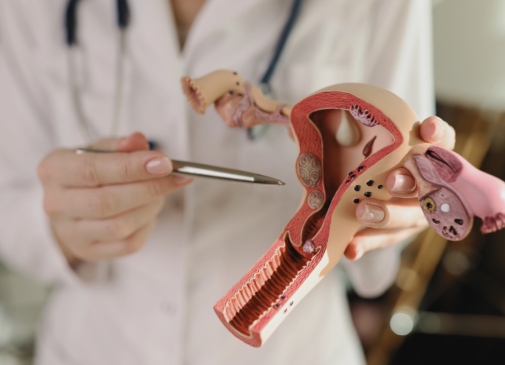
Senator Angela Alsobrooks’s message is clear: Fibroids affect up to 80% of women, yet a staggering 0.03% of federal research funding goes toward studying them.
Fibroids impact 80% of women yet only 0.03% of our research dollars go to studying it.
— Senator Angela Alsobrooks (@Sen_Alsobrooks) September 2, 2025
I sat down with women’s health providers at Frederick Health to discuss how my U-FIGHT Act will fight for fibroid research, and how we can ensure access to women’s health care in Western MD. pic.twitter.com/bXzAyISHJG
But now, there’s momentum. The Uterine Fibroid Intervention and Gynecological Health Treatment (U-FIGHT) Act is emerging as a pivotal federal response.
What Is the U-FIGHT Act?
Introduced in the 119th Congress, the U-FIGHT Act (S. 2531) was spearheaded by Senator Alsobrooks (D-MD) in collaboration with Senator Cynthia Lummis (R-WY), marking it as a bipartisan effort.
- Introduced to the Senate: July 30, 2025
- Status: Read twice and referred to the Senate Health, Education, Labor, and Pensions (HELP) Committee
Key Provisions of the Bill
The U-FIGHT Act seeks to address fibroid disparities on multiple fronts:
- Section 2: Authorizes the Department of Health and Human Services (HHS) to conduct and support research into early detection and interventions for uterine fibroids, and to establish evidence-informed strategies for health care applications.
- Section 3: Empowers HHS to award grants to states for:
- Early detection methods, such as advanced imaging
- Patient navigation services
- Implementation of evidence-based strategies
- Improved access to care settings
- Section 4: Funds research on treatment disparities—e.g., pain management in surgical procedures—and conditions like Asherman’s Syndrome and intrauterine adhesions.
- Section 5: Requires HHS to submit biennial public reports to Congress summarizing program outcomes and research findings.
Why It Matters
- Widespread Impact: Fibroids are extremely common—studies estimate that two-thirds of women will experience them in their lifetime, with Black women disproportionately affected in both prevalence and symptom severity.
- Severe Consequences: These noncancerous growths can cause chronic pain, heavy menstruation, fertility issues, and often necessitate invasive surgeries like hysterectomies.
- Economic Burden: Annual costs associated with fibroids range between $6 billion and $34 billion, encompassing medical treatment, hospital stays, and lost productivity. Yet, the issue remains underfunded and under-recognized.
Advocacy & Collaboration
Senator Alsobrooks has emphasized the urgency of action—reflecting both personal and systemic concern:
“We only now as a country direct about 0.03% of all of our research dollars to fibroids… this is a physically painful issue that affects close to 80% of all of the women in our country. And yet only 0.03% of research dollars is directed to this issue. It is time that changes.”
High-profile allies include:
- Actress Lupita Nyong’o, who has been vocal about her own experiences with fibroids, joined Senator Alsobrooks and other lawmakers in discussions around advancing the bill in July 2025.
- Congresswoman Shontel Brown (D-OH) introduced the bill in the House and echoed the call: “Silence saves no one. Proud to partner with Senator Alsobrooks on federal legislation…”
The Road Ahead
Where the U-FIGHT Act stands today (as of early September 2025):
- Introduced in the Senate on July 30, 2025
- Referred to the HELP Committee
- Backed in the House by Rep. Shontel Brown (H.R. 8247)
The next important steps are:
- HELP Committee Hearings
- Building bipartisan support, which the involvement of Senator Lummis suggests this bill has strong potential for.







